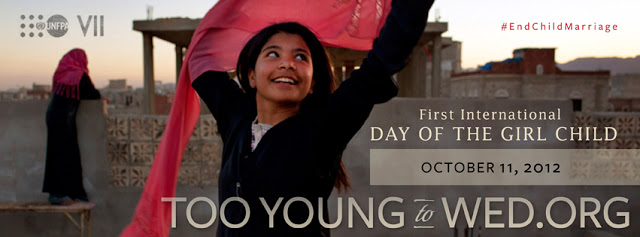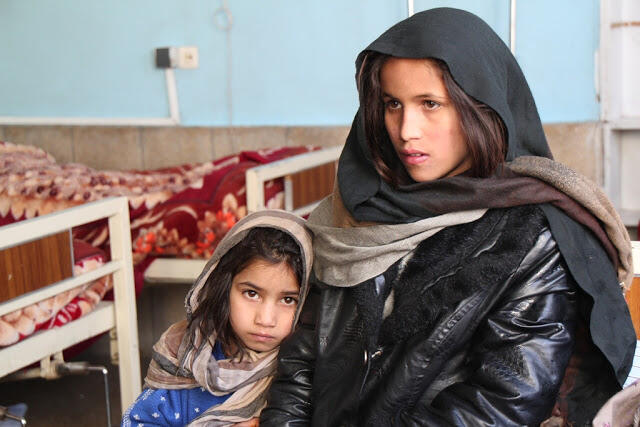My Life, My Rights, End Child Marriage
Kabul, 11 October 2012 - In Afghanistan child marriage is a harsh reality for too many young women. More than 46 per cent of Afghan women are married before age 18, according to the Afghanistan Multiple Indicator Cluster Survey 2010/2011, and more than 15 per cent before age 15.
Today, on the International Day of the Girl Child, UN agencies come together to cast a spotlight on the issue of early marriage in Afghanistan. Early marriage is a fundamental violation of human rights and impacts all aspects of a girl's life. Early marriage denies a girl her childhood, disrupts her education, limits her opportunities, jeopardizes her health and increases her risk of being subjected to violence, exploitation and abuse.
Child marriage is defined as any marriage carried out below the age of 18 years, before the girl is psychologically ready to shoulder the responsibilities of marriage and physically prepared to bear children.
"The requirement for the free and informed consent of both parties to a marriage is recognized in international legal instruments to which Afghanistan is a party as well as under its national laws in cognizance with the principles of Islam. The Elimination of Violence Against Women Law criminalizes the practice of Child Marriage recognizing that a child under the legal age of marriage is not capable of giving her valid consent to enter into marriage. A forward looking Afghanistan must ensure that all necessary measures are taken to fulfill its international and national legal obligations in protecting the Girl Child from such illegal and harmful practices which prevent them from full enjoyment of their fundamental rights" commented Ján Kubiš, United Nations Special Representative for the Secretary General in Afghanistan.
The International Day of the Girl Child focuses attention on the need to address the challenges girls face and to promote girls' empowerment and the fulfillment of their human rights. Preventing child marriage will protect girls' rights and help reduce their risks of violence, early pregnancy, HIV infection, and maternal death and disability, including obstetric fistula.
"Child marriage is a health issue as well as a human rights violation. There is a strong correlation between the age of the mother and maternal mortality and morbidity. Girls aged 10-14 are five times more likely to die in pregnancy or childbirth than women aged 20-24. Despite a lot of progress during the past ten years, Afghanistan's maternal mortality rate is still 327 deaths per 100,000 live births - according to the Afghanistan Mortality Study 2010 - and child marriage is one of the main barriers to improving the health of women and children in Afghanistan" said Dr. Laurent Zessler, UNFPA Afghanistan Representative.
"The link between access to education and the prevention of early marriage is clear. When girls stay in school, they are far less likely to marry young and so are far more likely to delay child birth until they are physically and psychologically prepared" said Vidhya Ganesh, Deputy Representative, UNICEF Afghanistan. "Yet, girls in many parts of Afghanistan - particularly in rural areas - continue to have very limited access to education due to restricted movement, cultural barriers, shortages of female teachers and poor facilities. This has to change."
"Girls face a huge risk when they marry at a young age. Violence is one of the negative consequences of child marriage which affects both the physical and psychosocial health of young girls and robs them of their childhood and future opportunities. Increasing the age of marriage reduces girls' risk for physical, sexual, psychological, and economic abuse. Besides marriage below the age of 16 is a violation of the Afghanistan Civil Law" said Ingibjorg Gisladottir, UN Women Representative.
In March 2003, Afghanistan ratified the UN Convention on the Elimination of All forms of Discrimination Against Women (CEDAW), stating that no marriage of a child can be considered legal. However the practice of child marriage is still widespread in Afghanistan, depriving girls of their childhood and limiting their potential for participation in the political, economic and social development of their communities and of their country.
UN agencies (UN Women, UNFPA, UNICEF, UNDP and UNAMA) support the Government of the Islamic Republic of Afghanistan in the fulfillment of the rights of all women and children.




